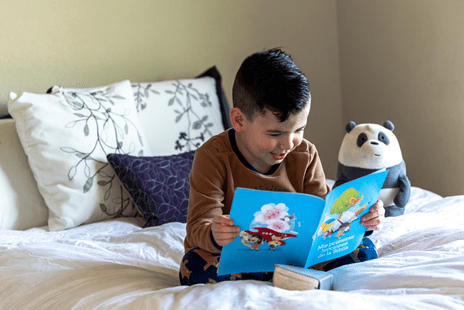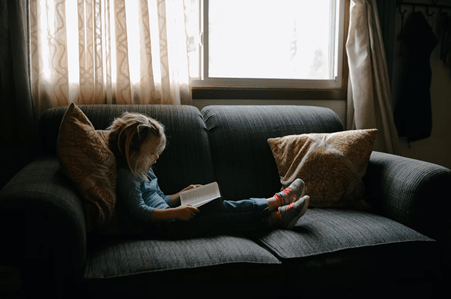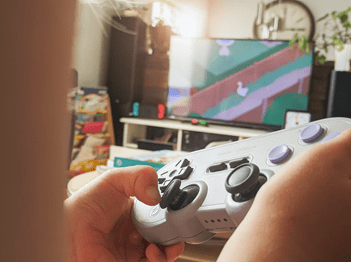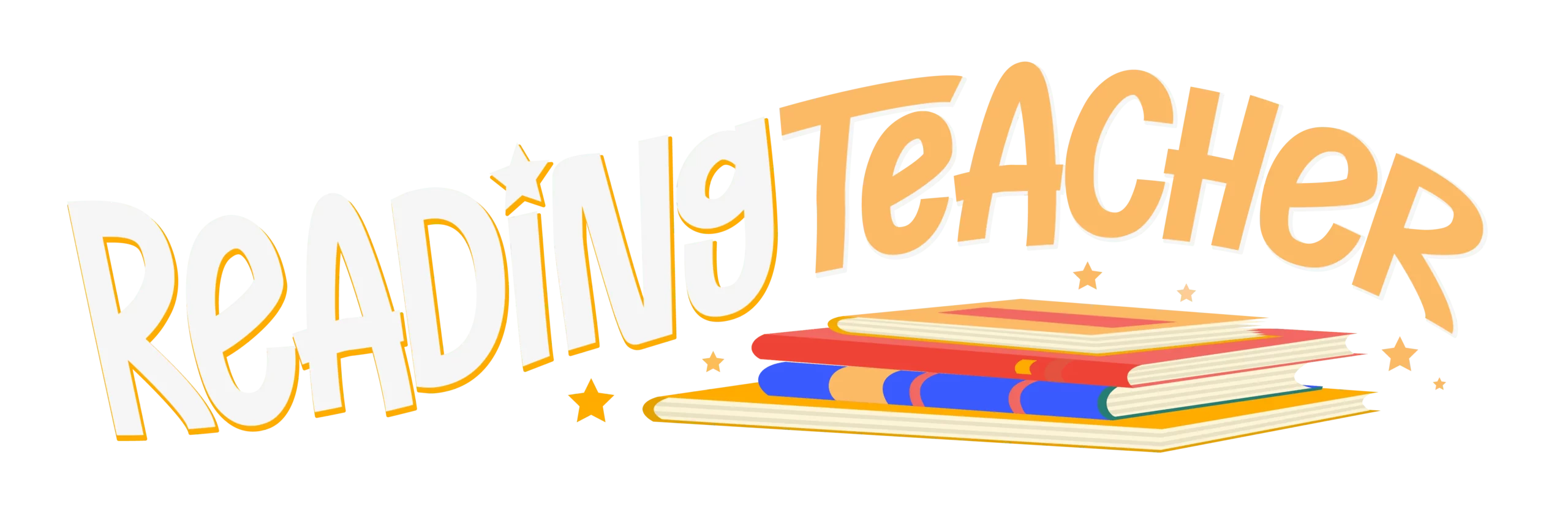Creative (& Pediatrician-Endorsed!) Ways to Combat Pandemic Reading Loss
True to our name, one of our main goals at Reading Teacher is to help classroom teachers create a personalized reading curriculum for students grounded in the science of reading. Our toolkit of interactive stories, decodable books, printables, and more represents years of research on reading science and structured literacy, which focuses on both foundational skills such as decoding and higher-level skills such as reading comprehension and writing. While teachers perform much of the heavy lifting in the realm of structured literacy, we also recognize the pivotal role of parents and caregivers in a child’s reading journey. Today, we focus on the small but powerful steps that parents and caregivers can take to improve their student’s reading confidence at home, followed by the latest research on creative ways to support reading progress beyond the classroom and Combat Pandemic Reading Loss.

As some schools continue to navigate virtual or hybrid settings, experts share several pointers for the caregivers of today’s youngest readers. The American Academy of Pediatrics recommends that caregivers read regularly in front of their children - and better yet, read together before bedtime (goodbye, screens!). Pediatricians also emphasize the power of library cards: we know from previous newsletters that libraries are crucial in our communities, and a free card includes access to both physical and digital reading activities. Parents can even designate a special reading nook, corner, or room at home, creating a cozy and calm space for reading and phonics lessons.

Of course, learning to read is not as simple as cozying up in a nook - as magical as it sounds. When we view the process from the perspective of a kindergartner, we see that reading involves several other essential mechanisms that we don't necessarily think about, such as knowing how to move our eyes on the page or how to use our working memory to link words together in a coherent sentence, says Daphné Bavelier, a professor of Psychology and Educational Sciences. This recognition propelled Italian scientists to design a child-friendly action video game with mini challenges that train different executive functions including working memory, cognitive flexibility and inhibition - all of which are essential for both learning to read and continuing to read for pleasure throughout adulthood. The scientists worked with 150 Italian schoolchildren, ages 8 to 12, and found that children who played the action video game significantly improved their reading speed and accuracy after playing the game for six weeks, two hours a week under school supervision. The video game will soon be available entirely at home to complement school lessons, setting the precedent for other video games with a hidden agenda of reading success.

Such creative explorations of reading science illustrate that the science of reading, which has been popularized in recent years by educational media, does not simply rely on phonics and structured literacy. In addition to these foundational pillars, learning to read - and, in particular, learning to read during a pandemic - is a complex and individualized process, one that calls on a variety of executive functions and caregiver support. In light of this reality, parents and caregivers can find immense value in simple yet powerful at-home strategies, partnered with teachers, games, and lessons that operate from the dynamic body of research known as the science of reading.
Take-Aways:
- As schools respond to the most recent surge in COVID-19 cases, reading experts have taken to online platforms to share advice for caregivers on how to support their young readers at home.
- Pediatricians recommend that caregivers model healthy reading behaviors by reading regularly and before bedtime with their children, as well as becoming a regular library patron. Parents can even designate a comfortable and quiet area in the home where their children can complete reading lessons or simply read for pleasure.
- These recommendations follow current research on the science of reading, which shows the potential for video games and other play-based activities to increase students’ reading speed, accuracy, and overall enjoyment outside of the classroom.
Start Teaching Reading for Free Now!
Access Level 1’s four interactive stories and the accompanying supplemental resources to teach elementary students how to read. No credit card is needed. Join the 42,635 teachers and students using our reading program.
